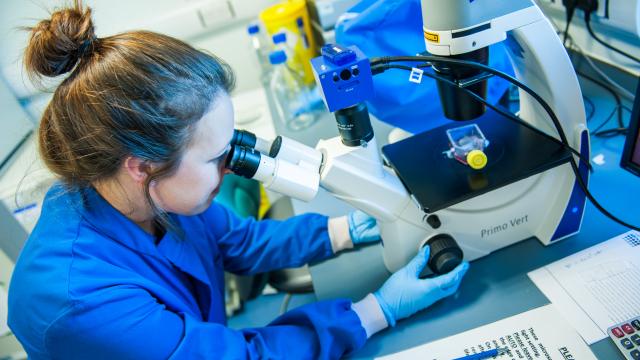Immunotherapy
Immunotherapies are a new type of type 1 diabetes treatment. They work by tackling what goes wrong in type 1 diabetes - the immune system's attack. By retraining the immune system, they can help people keep producing more of their own insulin for longer.
In our video, we explain how immunotherapies work and how they could help people at different stages of type 1 diabetes.
The first immunotherapy has been licensed in the UK, marking the start of a major shift in how we treat type 1 diabetes. But this is only the beginning. We’re funding research to make these treatments more effective and ultimately able to prevent type 1 diabetes altogether, and bring us closer to a cure.
On 14 August 2025, the first-ever immunotherapy for type 1 diabetes was licensed for use in the UK. The Medicines and Healthcare products Regulatory Agency (MHRA) decided teplizumab, also known as Tzield, is safe and effective at delaying the development of type 1 diabetes for people in the early stages of the condition. Find out more in our news story.

What are immunotherapies and how do they work?

Finding and treating early-stage type 1 diabetes

Our immunotherapy impact

Hear from Professor Colin Dayan

Mahn's story

